Tauquir Ahmed’s ‘Tirthojatri’ is a stellar theatrical comeback
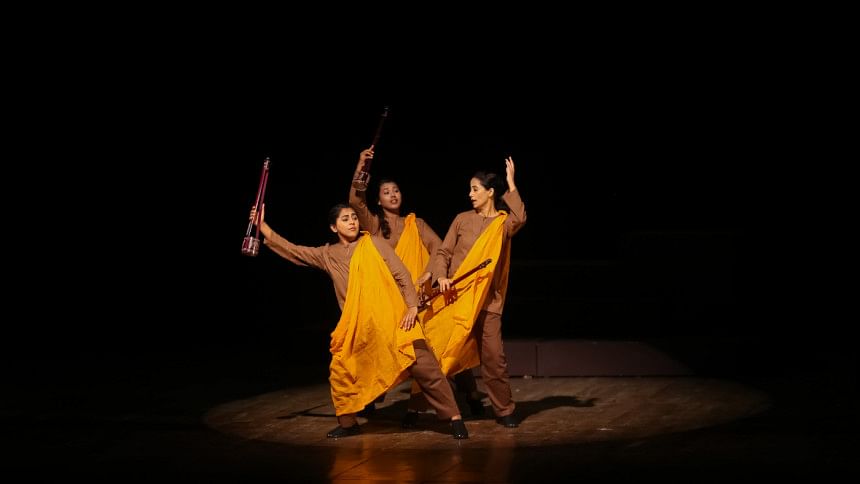
After a substantial hiatus, Tauquir Ahmed made his theatrical comeback with the play Tirthojatri in New York. Over the weekend, the esteemed artiste enthralled theatre lovers of Dhaka with his directorial rendition of the play, at the Bangladesh Shilpakala Academy (BSA).
The play is adapted from popular writer Humayun Kabir's philosophical fiction Tirthojatri Tinjon Tarkik. It is co-written by the fiction's original author, and Tauquir himself.
The plot of the play revolves around three former soldiers who, after a brutal war, find out they have nowhere to go. The brutality of the war took their loved ones away and destroyed their homes. Thus, appalled by the horror of their newly found reality, they together begin a journey towards introspection and wisdom.
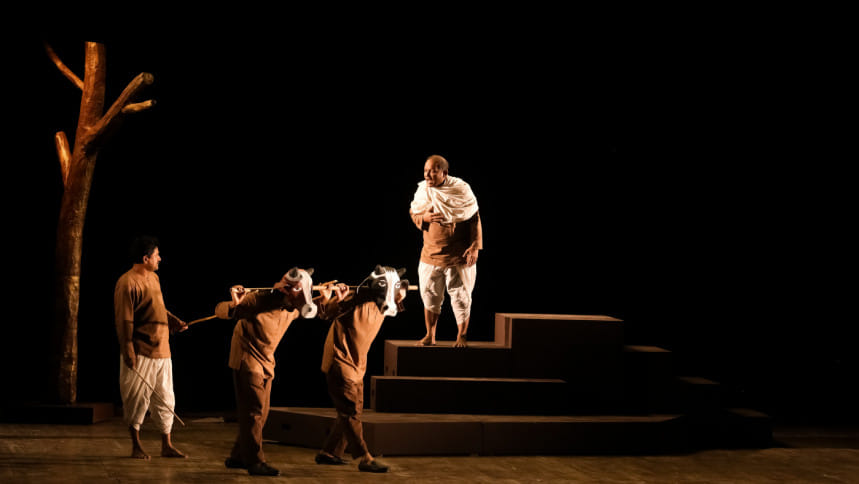
In the play, we see these three sceptic explorers roam around the depths and peaks of the world to find answers and a home. However, to much of their astonishment and dismay, they find out that although the military wars have ended, the internal battles that human beings engage in with others and themselves never end or will.
As the play proceeds, the explorers- portrayed by three sets of different actors, indicating three different ages– encounter people engaging in internal and external conflicts that are not related to any greater good but differentiated perspectives. Self-conceitedness, righteousness, and pride, unsettles their previous convictions, bewildering them.
Tauquir gives the audience at least ten different morally conflicting and discomforting scenarios, where they experience the same confusion and dilemma these explorers deal with.
It was pretty clear from the start that the explorers were set at a premonition of being alike the audiences and humans overall, with such casualty, ease, and no special characterization or treatment, that the side stories and mid-scenes become more prominent and take centre-stage almost every time.
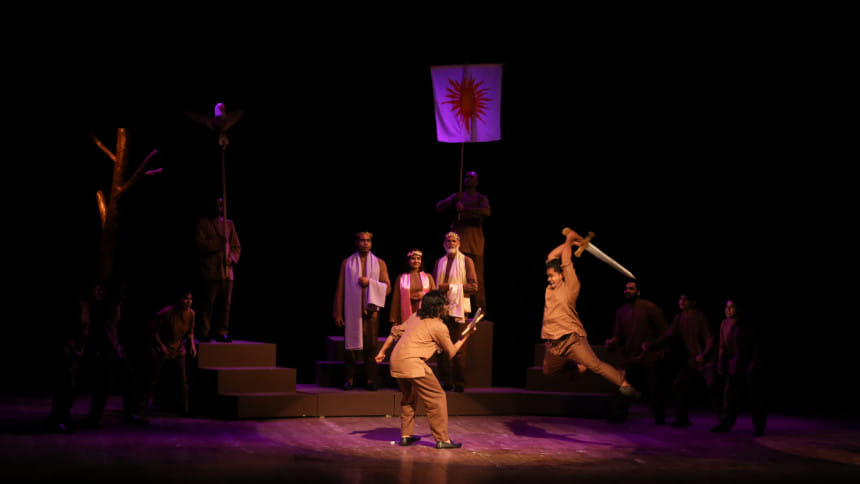
As their journey reaches the end of the play, these explorers start to doubt each other's morality, judgement, convictions, and perspectives on core humane philosophical stances, and the play never even tries to present comfortable answers.
"It was actually intended. I picked this novel for the play for its philosophical dimensions. Life is sad and perplexing like this play indeed; one could never make sense of what is happening around and to them, and there is no solution to anything," explained Tauquir Ahmed to the Daily Star.
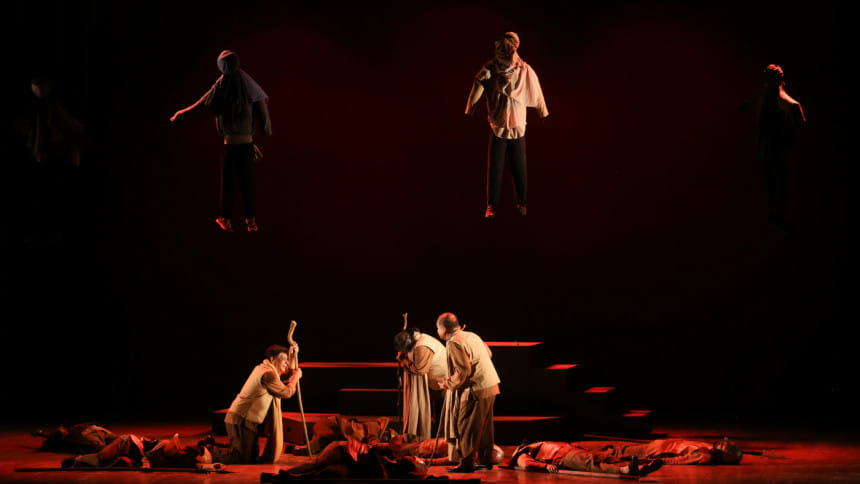
"What we tried to do with this rendition is to throw and present the same questions we ask ourselves at every instance and pretty much go by our day nonetheless. My intention was to take that same element of our lives and remind ourselves how important self-introspection is," he concluded.
As a director, Tauquir Ahmed did a tremendous job in the theatrical representation of his tenet. His confidence in his craft was traversing throughout the 1hour 45-minute-long play, yet it did not feel lengthy at all.
The masterful placement of over 15 actors in extravagant battle dresses in front of the main hall of BSA (even before the play has begun), their entry to an awfully minimalistic yet subtly powerful set design, created a confusing and tense atmosphere for the audiences. Thus they never actually could settle or relax in their seats to get the full sense of the splendour that was going on stage.
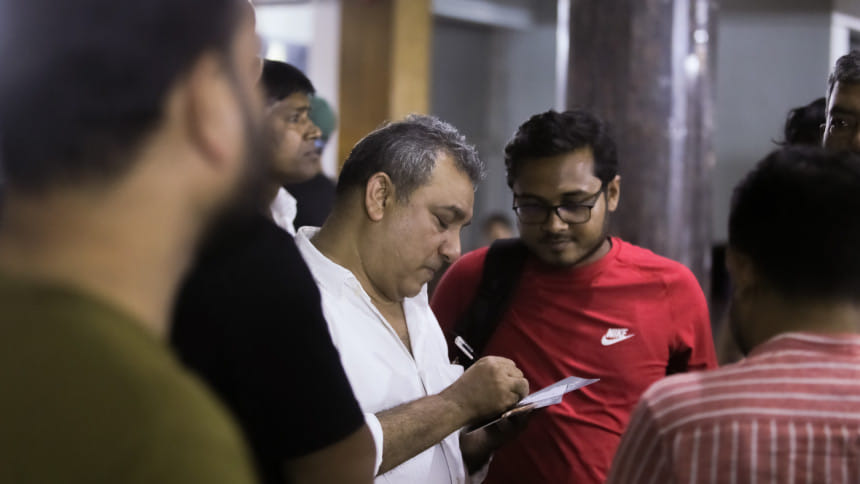
The sound design and the playful yet bold presence of over six songs, played skilfully by the musicians, were exquisite, thanks to the sound designer of the play Pintu Ghosh. The costume design was so articulate yet simple, and it blended in with every character.
Tauquir somehow achieved the perfect coherence between the actors, dialogues, music, light, and set design, and it served him well. However, the one thing that seemed a little out of place was a few comical scenes; they might have been handled better. Also, the dialogue of its main three protagonists seemed a little archaic, as it fell short of meeting the ease of the mid-scenes.
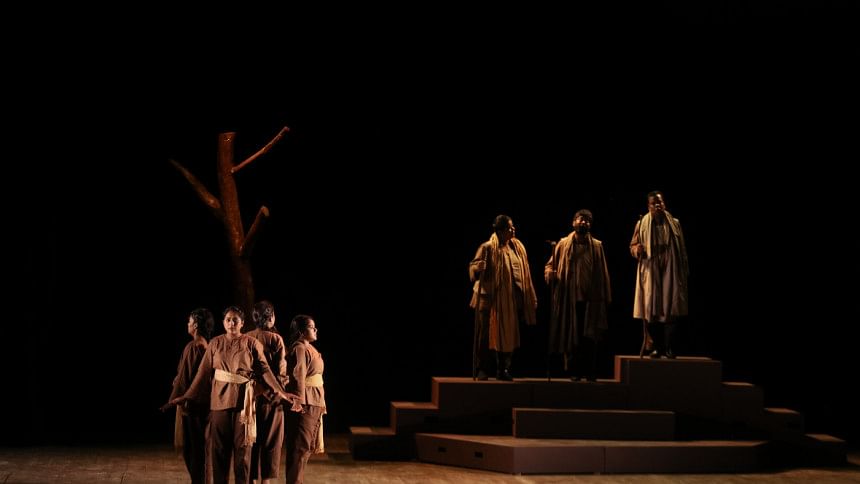
This is the 16th instalment of the play from Taukir's theatre troupe Natyakendra. Tauquir has dazzled audiences with his directorial masterpieces throughout his career, including "Ichchhamrittyu," "Hoybodon," and "Pratisaran."
Prior to this, Tauquir presented the play to the expatriate audience at the Queens Theater in New York, USA, on March 18. "Tirthojatri" was showcased at BSA till August 4.

 For all latest news, follow The Daily Star's Google News channel.
For all latest news, follow The Daily Star's Google News channel. 




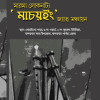
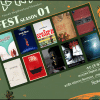


Comments